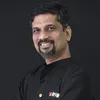Our goal is to make sure no one in today’s workforce becomes irrelevant due to lack of new skills, says Degreed CEO Chris McCarthy
US-based learning and skill tracking platform Degreed makes organisations recognise employees’ skills picked up from different learning platforms and promotes continuous learning.
Without focussing on what an employee wants to learn, today corporate firms subject them to learn something that might not suit their skill sets. This is what Degreed is looking to change. Founded in 2012, the US-based company is currently working with 250 corporations whose turnover is more than a billion dollars, and has four million people learning on its platform. It has also raised over $78 million till date.
In a conversation with YourStory, the company’s CEO Chris McCarthy speaks about why degrees are not relevant for people, and how the company is on a mission to make people learn for life.
1560193561701.jpg?fm=png&auto=format)
Chris McCarthy, CEO of Degreed
YourStory: Can you tell us about your early days? How did you join Degreed, and your first year at the company?
Chris McCarthy: I was lucky enough to figure out what I was good at and what interested me early on in life. My passion for education and learning started when I was in college doing entrepreneurship. But my school wouldn’t let me adjust my class schedule to spend time building that business. I looked at the student debt I was accumulating, how my education wasn’t propelling me to my true passion - building a business, and realised how broken the education system was.
This experience plus the insane student debt crisis in the US led me to join a startup called Zinch, a company that helped kids get into college and pay for it. It was later acquired by Chegg, an education technology company, and I ran that business for three years.
This is where I met David Blake, the Founder of Degreed. His passion for education and vision for life-long learning and recognition was completely in line with my life experiences and values. We clicked immediately and when he proposed, I didn’t hesitate to get on board.
Everyone thinks there is a silver bullet to starting a company, but they don’t realise it takes consistency and hard work. Dave and I did the hard work then, and we’re doing it now. The challenges now may be lesser than before, but there are still fires that start and we know how to put them out.
YS: What did the platform look like before? What kind of content did you start with?
Chris: Our goal was to be able to track on Degreed. We let the users and the market take us to where we needed to go, and saw all the content that was consumed. It was a very informative data set and we rolled up our sleeves and did the hard work.
Eventually, we were able to use the data to “skate to where the puck was going to be”. Initially, it was for people inside companies, as this was a new technology and a new category. We first got the early adopters who were either seeing these trends by themselves, or were trying to build a solution by partnering with us.
Now, in our fifth year, we are engaged with the largest companies in the world and it is a fixed line item in the HCM (Human Capital Management) tech stack of an organisation.
YS: What feedback did you get from the early VCs, and how did you tweak the product?
Chris: Through the years, we have spoken to hundreds of investors and advisors, and some themes emerged. Most tried to push us to recruiting, especially in the early days, as very few saw the play in learning and development. Investors were the earliest ones to push us to enterprise vs. small and medium sized businesses, teams, and a consumer business model. As a young company, we decided to focus on enterprise business.
YS: Can you tell us about the company’s growth between 2014 and 2017.
Chris: I’m blown away by how fast the business has grown, and we are proud of the amazing customers we have worked with. The adoption of this technology has been faster than I expected. It’s a big reason why we are investing so heavily in India.
YS: How did you manage to scale the team to its current stage?
Chris: Whenever I interview potential hires, I question them to understand how a person is perceived as a leader and why. It’s also a guideline I try to operate by. The best leaders instil confidence and swagger in the rest of the team that we will execute on what we set out to do. I recruit the best talent and teammates, try to get the most out of each of them, but more importantly get them to work well as an aligned team.
YS: Tell us about your Series B and C rounds. What was the value proposition that the company achieved that VCs wanted to back to scale?
Chris: In the spring of 2013, we raised $1.8 million in a seed round from investors and VCs including Deborah Quazzo, Mark Cuban, Mike Levinthal, Chris Eyre, Larry Rosenberger and Walt Winshall.
Since then, we have raised $32 million more in our Series A and Series B rounds, which added Jump Capital, Signal Peak, GSV Acceleration, and Rethink Education to our investor list.
The $42 million Series-C financing raised in March 2018, brings our total funding to $75 million. It was co-led by Owl Ventures and Jump Capital. Founders of Circle Capital, along with existing investors GSV Acceleration Fund and Signal Peak Ventures, also participated in the round.
YS: What is the difference between LMS and LXP management systems? Where does Degreed stand here?
Chris: Learning management systems are for managing, and learning experience platforms are for learning. Degreed is the next generation learning solution combining mobile, social, gamification, and content from all the top content providers, informal learning and formal learning - all in one portal.
YS: Tell us about the future of learning. What is happening to the global workforce today, and what type of employment should one get used to?
Chris: Work looks a little different today. Careers can be longer by 30 to 40 years, tenures are shorter, and skills will stay relevant for less time. Based on LinkedIn’s 2017 Workplace Learning Report, the average skill today has a shelf life of five years. Our goal is to make sure no one in today’s workforce becomes irrelevant after a mere five years due to lack of new skills. We believe people want to develop their skills for the future regardless of their age and professional background.
Degreed is constantly working with the most innovative companies such as Airbnb, Boeing, Unilever, and others to future-proof their business by up-skilling their most valuable assets - their employees.
We’ve created a platform that mimics the user experience of socially-enabled sites, allowing people to learn anything, from any source, from anywhere, while allowing businesses and teams to share content and track and measure learning – giving people new skills in a very digestible format.

David Blake, Founder of Degreed
YS: Tell us about your acquisitions.
Chris: In June 2018, we combined forces with Pathgather, a fast-growing innovator in learning experience platforms. The New York-based company brought on board 30 smart, creative, and dedicated people. That means we’ve now got the largest team in the industry – more than 230 people – dedicated exclusively to improve people’s learning experiences and linking career growth to business priorities.
The acquisition also brought together two real innovators in learning experience platforms – our two organisations literally created this market. It also solidified our lead in the fast-growing learning experience platforms market, with a combined client base of more than 200 organisations, over four million licensed users, and nearly $100 million in funding.
YS: How big is Degreed India?
Chris: In India, we are ahead of our initial business targets, and are continuing to invest heavily here - both in resources and time. With about 12 customer acquisitions, a few of the most progressive companies in India have trusted us. We also have two partners here - Enthratech and Design in Change, and have conducted 10 events across the HR and L&D landscape slated for 2019. The India team will be about 10 this year.
We are committed to India because it is a progressive market with customers who are advanced in their processes and thoughts. The learning technology market in India is to the tune of five billion (LMS market alone is around one billion), and India is also a skills-first. So, upskilling and keeping yourself relevant is very important. We see lots of potential for tech and learning organisations here.
As artificial intelligence and machine learning take over more of the physical and rote skills of today’s workers, human skills such as emotional intelligence, empathy, creativity, critical thinking, and problem-solving will become even more important. These are the skills that can be developed throughout one’s career.
YS: What is your advice to entrepreneurs starting up in the product business?
Chris: Start with a purpose. Degreed is one of the most mission-aligned companies. Sometimes, this comes into conflict with operational alignment or business priorities, and we have had to make hard decisions. Making an impact while at the same time building a giant company is a rare situation, and we have to do both to truly succeed here.
YS: What is the future of Degreed?
Chris: We are working to reduce cost and maximise value from existing content vendors and sources and to improve time to readiness and proficiency by accelerating and improving onboarding and leadership development. We are also looking to enable a culture of continuous learning to drive employee engagement, productivity, and retention, as well as increase internal mobility and organisational agility.


1560193561701.jpg?mode=crop&crop=faces&ar=16%3A9&format=auto&w=1920&q=75)







